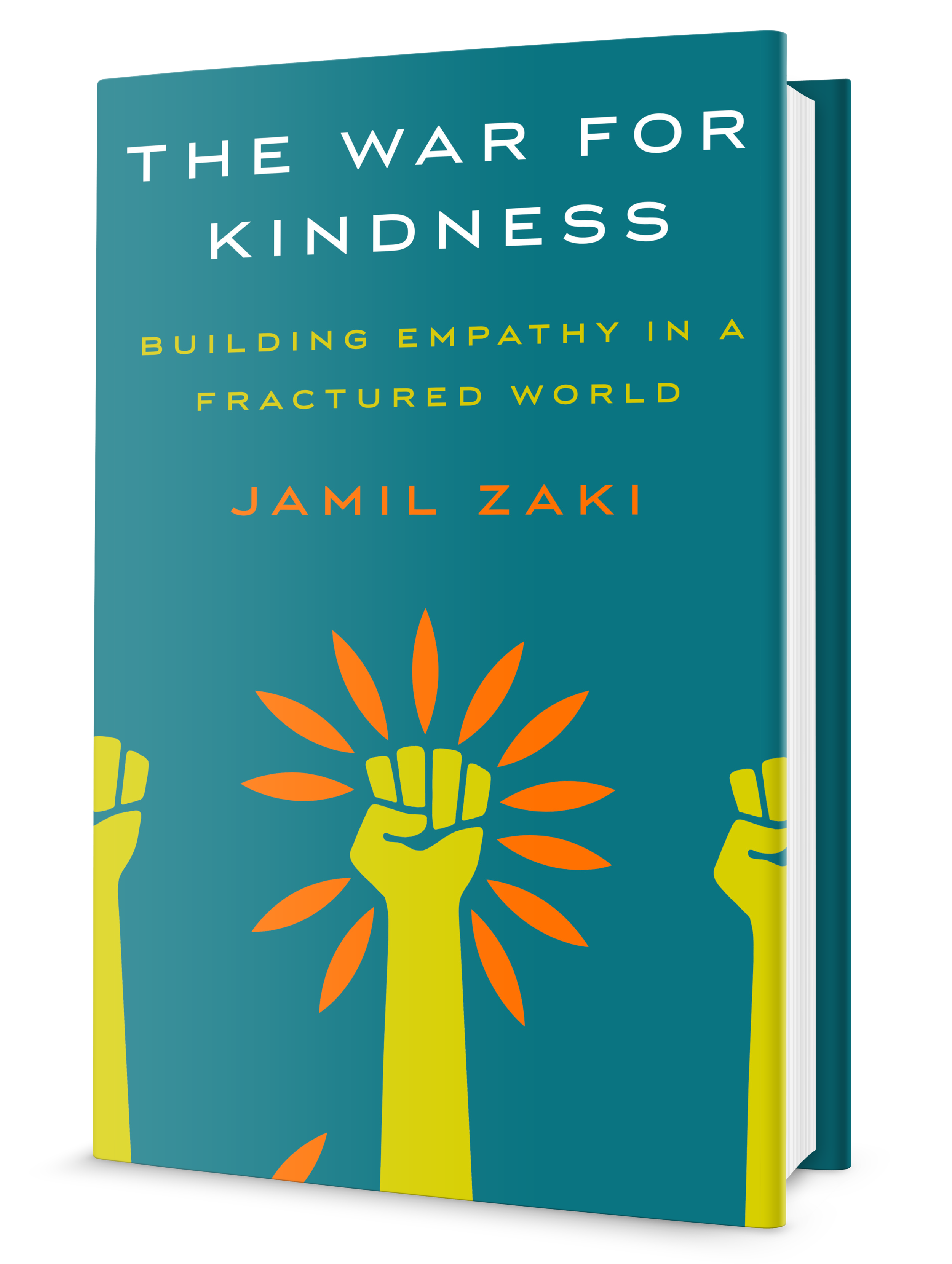Excerpt from The War For Kindness
FROM PLATO TO Galton to modern psychology and neuroscience to the pop culture miracle of Star Trek, the received wisdom is clear: Empathy is beyond our control. If it is a trait, then there’s nothing we can do to become more empathic over time. And if it’s a reflex, there’s nothing we can do to change how much we feel for one another in the moment. This is all well and good when empathy comes naturally: for instance, among our family, friends, or tribe. But it’s bad news for modern times. It means that whenever we fail to empathize, we’ve hit the limits of our circuitry. We must simply stand by and watch as our world becomes more callous and disconnected.
Thankfully, the Roddenberry hypothesis—and the centuries of thought it represents—is wrong. Through practice, we can grow our empathy and become kinder as a result.
This idea might sound surprising, but in fact it is supported by decades of research. Work from many labs, including my own, suggests that empathy is less like a fixed trait and more like a skill—something we can sharpen over time and adapt to the modern world.
Consider our diet and exercise habits. Humans evolved in an environment where exercise was constant and sustenance was scarce. In response, we developed a taste for fat, protein, and rest. Now many of us are inundated with fast food and rarely required to exert ourselves. If we allowed our instincts to take over, we could indulge ourselves into an early grave. But many of us don’t accept this; we fight to stay healthy, adjusting our diets and going to the gym because we know it’s the wise thing to do.
Likewise, even if we have evolved to care only in certain ways, we can transcend those limits. In any given moment, we can turn empathy up or down like the volume knob on a stereo: learning to listen to a difficult colleague, or staying strong for a suffering relative. Over time, we can fine-tune our emotional capacities, building compassion for distant strangers, outsiders, and even other species. We can free our empathy from its evolutionary bonds.
In other words, empathy is not a superpower after all, bestowed upon Betazoids and, to some extent, the rest of us. It’s a regular old power, like being strong, agile, or good at Scrabble. Some people are genetically predisposed to be stronger than others—but strength is also up to us. Live a sedentary life, and your muscles will atrophy. Stay active, and they’ll grow.
My parents’ divorce was an empathy gym for me. It forced me to exercise compassion—to work at connecting with both my mother and father, instead of shutting down or engaging in their conflict. We can all choose to become more empathic, just like we can choose a healthier lifestyle. In many cases, they are the same choice. As the novelist George Saunders writes, “There’s a confusion in each of us, a sickness, really: selfishness. But there’s also a cure. So be a good and proactive and even somewhat desperate patient on your own behalf—seek out the most efficacious anti-selfishness medicines, energetically, for the rest of your life.”
This book is about those medicines, and the science in which they are rooted. With the right treatments—including unlikely friendships, art, and community building—we can grow a more muscular kind of empathy, and broaden our kindness along the way. In these pages, we will meet cops who learn to interact more peacefully with civilians, Hutus and Tutsis moving toward forgiveness after genocide, and lifelong bigots dissolving their hatred. We’ll see ex-convicts discussing novels with the judge who sentenced them, rediscovering their humanity in the process, and NICU physicians and nurses learning to help families through their hardest moments without drowning in their own pain.
Fighting for kindness is not easy for them, and it won’t be easy for any of us. This book will not provide ten simple steps for how to be kinder today. It won’t promise that, despite appearances, people are essentially good after all. Humanity might naturally be 39 percent kind, or 71 percent kind, or somewhere in between. What matters is not where we begin, but where we can go.
In five years, or one, the world could be a meaner place or a kinder one. Our social fabric could further tear or start to mend. We don’t owe others empathy, especially if they meet us with cruelty or indifference. But if we succumb to our lazier emotional instincts, we will all suffer more. The direction we take—and our collective fate—depends, in a real way, on what each of us decides to feel.
